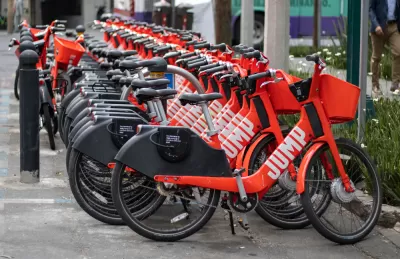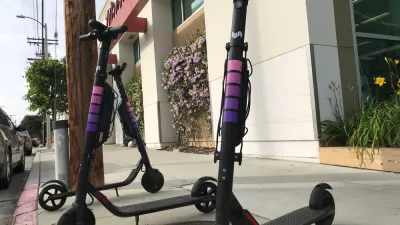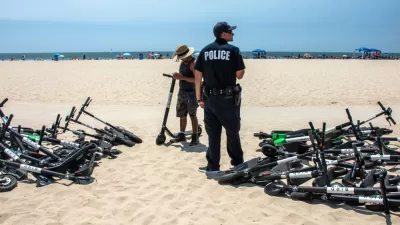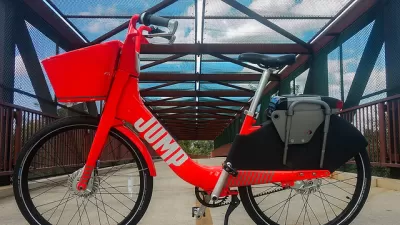An exposé of the dramatic rise and fall of JUMP bikes under the ownership of Uber, in partnership with cities all over the United States.

Aaron Gordon tells a history of bikeshare that starts with a high-profile acquisition and ends up in the literal garbage.
The article starts at the end, when images of JUMP bikes being destroyed by the thousands went viral on social media at the end of May, before interviewing former JUMP employees for lessons about where Uber's ownership of the bikeshare company went wrong. "Few, if any, of JUMP’s former employees were shocked by the videos [of the bikes being destroyed]. To some, it even felt a fitting, if upsetting, coda to a troubled two years under Uber’s stewardship."
The main culprit of JUMP's decline and fall, was a shift in company culture from efficient and idealistic to scale-obsessed and wasteful. Not all of the blame is laid at the feet of Uber, however. "It's about the role cities play in determining their futures, how much of that role has been usurped by a handful of people with a lot of money, and the perils of trying to be the good guy," writes Gordon.
The long-read exposé ranges from the history of the original dockless bikeshare companies, like SoBi, Motivate, Ofo, to the sudden explosion of venture capital funding and the ups and downs of popularity and missed revenue expectations that followed in the second half of the 2010s—all before Uber took over JUMP bikes in 2018.
"Accounts differ on precisely how long it took Uber to undermine everything JUMP had previously been about," writes Gordon. "Some former employees said it happened virtually immediately. Others described a more gradual process that took a few weeks. But they unanimously agreed it didn’t take long at all for JUMP to stop being JUMP."
The big question looming over the entire discussion, and the implications of the JUMP story for future private efforts to deliver alternatives to automobile travel in urban areas, is whether the bikeshare model can be profitable at all. In May, Uber sold JUMP bikes to Lime, which was reported to have lost $300 million in 2019.
FULL STORY: How Uber Turned a Promising Bikeshare Company Into Literal Garbage

Alabama: Trump Terminates Settlements for Black Communities Harmed By Raw Sewage
Trump deemed the landmark civil rights agreement “illegal DEI and environmental justice policy.”

Planetizen Federal Action Tracker
A weekly monitor of how Trump’s orders and actions are impacting planners and planning in America.

The 120 Year Old Tiny Home Villages That Sheltered San Francisco’s Earthquake Refugees
More than a century ago, San Francisco mobilized to house thousands of residents displaced by the 1906 earthquake. Could their strategy offer a model for the present?

Ken Jennings Launches Transit Web Series
The Jeopardy champ wants you to ride public transit.

BLM To Rescind Public Lands Rule
The change will downgrade conservation, once again putting federal land at risk for mining and other extractive uses.

Indy Neighborhood Group Builds Temporary Multi-Use Path
Community members, aided in part by funding from the city, repurposed a vehicle lane to create a protected bike and pedestrian path for the summer season.
Urban Design for Planners 1: Software Tools
This six-course series explores essential urban design concepts using open source software and equips planners with the tools they need to participate fully in the urban design process.
Planning for Universal Design
Learn the tools for implementing Universal Design in planning regulations.
Clanton & Associates, Inc.
Jessamine County Fiscal Court
Institute for Housing and Urban Development Studies (IHS)
City of Grandview
Harvard GSD Executive Education
Toledo-Lucas County Plan Commissions
Salt Lake City
NYU Wagner Graduate School of Public Service





























